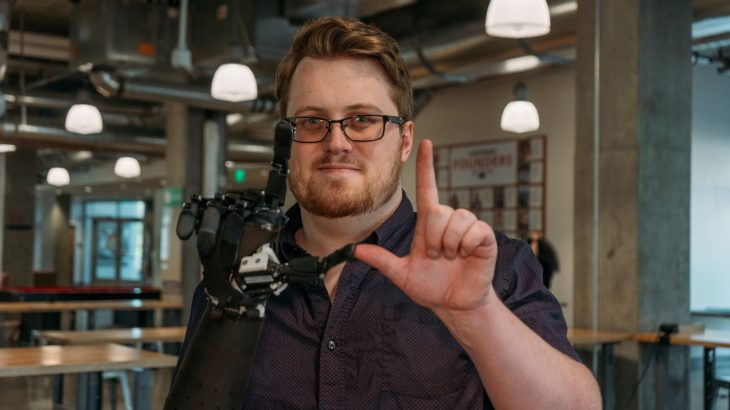Nick Witham, a biomedical engineering Ph.D. student at the University of Utah, founded GAIA Technologies with a goal to change lives through better prosthetics. GAIA is doing this as a prosthetics component company that builds sensor arrays to measure muscle shapes. The outcome: More affordable and higher-functioning prosthetic limbs.
GAIA’s sensor array technology can be found in the company’s device, the Myoplexer. The Myoplexer intuitively controls prosthetic hands by predicting your hand’s movements.
“The idea is that we can measure your muscles’ biomechanics to correctly put your artificial hand in the right position, which isn’t something that you could do before without invasive surgeries,” Witham said.
The first generation Myoplexer, in development this year, is expected to allow GAIA to continue market validation research and learn more about their target customers.
After discovering the technical and emotional challenges faced by those who need a prosthetic device, Witham knew existing technologies could be improved and founded GAIA. His team of engineers includes University of Utah alumni Thomas Odell, Brian Hanson, and Dr. Rami Shorti.
Witham credits their early success to support from the Lassonde Entrepreneur Institute at the University of Utah. “The funding from Get Seeded has by far been the most helpful,” Witham said of receiving three grants from the milestone funding program.
More articles like this in ‘Student Innovation @ the U!’
Find this article and a lot more in the 2021 “Student Innovation @ the U” report. The publication is presented by the Lassonde Entrepreneur Institute to celebrate student innovators, change-makers, and entrepreneurs.




